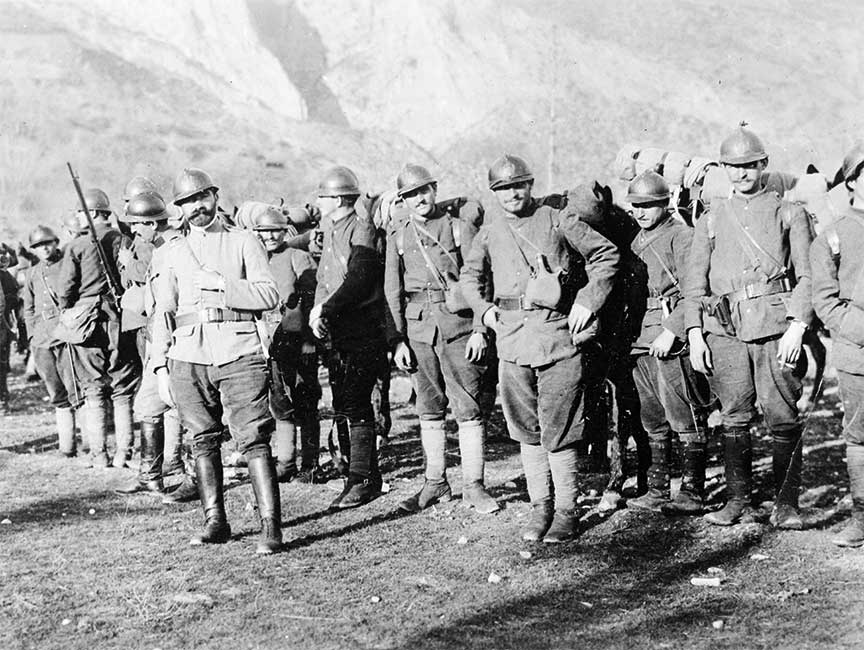1912 First Balkan War

Serbian Troops
The First Balkan War began with an uprising in Albania against continued Turkish rule. Within months it had escalated into an all-out war between a newly formed Balkan League and the Turks. The Balkan League was successful in driving the Turks out of most parts of the Balkans. An armistice was signed on December 3, 1912, recognizing those changes.
The steady weakening of the Turkish Empire created greater demands by the people of the Balkans to be set free from their rule. In the spring of 1912 and uprising began in Albania.
Some Turkish officials tried to convince the government to introduce reforms, but the government in Ankara refused and gave orders to put down the revolt. Many Turkish soldiers were unwilling to participate and mutinied. In June 20,000, Albanian soldiers captured Prishtina, which was a Turkish garrison. They warned the Turks of the consequences of their continued rule over Albania. The Turkish Pasha attempted to calm the Albanians, but they would accept nothing short of complete independence. The Albanians captured the critical town of Uskub. At this point, the Turks sent their most loyal troops to put down the rebellion. They succeeded in driving the Albanian forces into the mountains, but not suppressing them.
Meanwhile in Macedonia Serbs and Bulgarians constantly clashed, each side engaging in terrorist acts against the other, while the Turks who were nominally in charge, killed them both. As a result, both Serbs and Bulgarians in Macedonia demanded that Serbia and Bulgaria intervene on their behalf. In August, the Balkan League was established consisting of Bulgaria, Serbia, Montenegro, and Greece. On September 30, the armies of the league mobilized their forces. Despite the warning from Russian and the Astro Hungarian Empire not to take action on October 18, the Balkan League attacked. They were able to defeat Turkish troops. The Serbs rapidly occupied Sanjak of Novi Bazar and all the Serb towns in Macedonia.
On October 26, the Serbs captured Uskub, which had once been the Serbian capital. On November 18th Turkish forces were defeated at Monastir.
The Greek army was successful in driving the Turks out of Thrace. On November 8, the Greek army captured Salonika. They were also successful in capturing every Turkish Island in the Aegean. The Greek navy played a role in gaining control of the sea. All of Albanian and Macedonia were now under the control of members of the Balkan League.
The members of the league were stopped, however, as they reached the main Turkish lines of defense at Chatalja. The Turks were able to hold firm and prevent further assaults. Albania declared itself independent. When it became clear that new advances against the Turks would be almost impossible, all sides agreed on December 3, 1912, to a truce at Chatalja. Only the Greeks who insisted on continuing to fight refrained from signing the armistice. Thus ended the first Balkan War.
 >
>